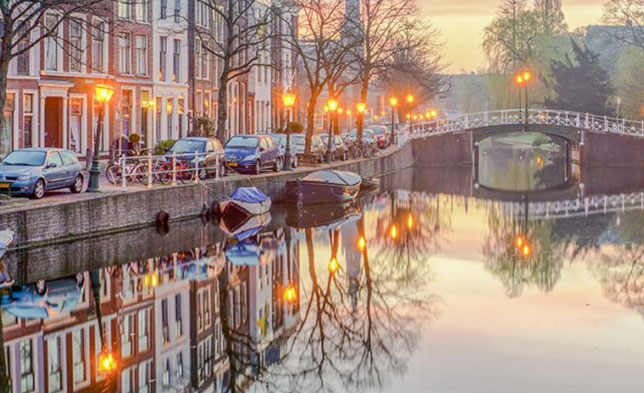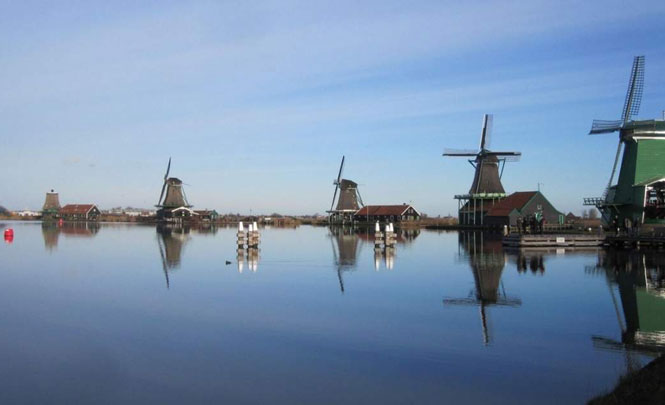By: Trends Editorial Team
 Frank Mollen is the Dutch Ambassador to the Islamic Republic of Iran since September 2021. He previously served as the Dutch Ambassador to the UAE and as Deputy Head of Mission at the Netherlands Embassies in Berlin, Germany and in Canberra, Australia. Earlier in his career Frank Mollen was posted in Kuwait, Kenya, France, Brussels and in different positions at the Ministry of Foreign Affairs in The Hague. Frank Mollen is married and has four children.
Frank Mollen is the Dutch Ambassador to the Islamic Republic of Iran since September 2021. He previously served as the Dutch Ambassador to the UAE and as Deputy Head of Mission at the Netherlands Embassies in Berlin, Germany and in Canberra, Australia. Earlier in his career Frank Mollen was posted in Kuwait, Kenya, France, Brussels and in different positions at the Ministry of Foreign Affairs in The Hague. Frank Mollen is married and has four children.
Thank you so much for giving Trends this exclusive interview despite your busy schedule, we are very grateful. If you were to summarize the state of affairs between Iran and the Netherlands, in terms of political relations as well as trade activities and cultural exchanges, how would you describe it?
The relations between Iran and the Netherlands go back more than 400 years. In the early days, the relationship was mainly a trade-related one: Dutch ships travelling to and from the Far East stopped in Iranian ports to load and unload valuable goods and trade with their Iranian counterparts. Since then our exchanges have diversified into many other areas, whether economic, cultural or otherwise.
But even old relationships need to be maintained and cherished, or they risk losing their value. Our longstanding relationship offers many opportunities for cultural exchanges, which provide important ways to foster the mutual understanding and appreciation of Dutch and Iranian people for each other’s countries. Photo exhibitions for example are a great tool in these difficult times, and we are currently working on a documentary that highlights the similarities between the cities of Isfahan and Amsterdam.
In the economic field, there is a lot more potential than what is currently happening, but different factors are hampering the complete fulfillment of our mutual potential. I hope that during my time here as Ambassador we will be able to take positive steps forward in this regard.

Please tell our readers about the Netherlands, its history, its people, art, culture and economy, as well as its tourist attractions? Holland also has a very international business culture, why is that?
The Netherlands is a relatively small-sized country in northwest Europe, and is one of the founding members of the European Union. With 17 million people on an area that is about 40 times smaller than Iran, and with one third of its total land below sea level, the Dutch need to be well-organized to accommodate that population density and to avoid getting wet feet. An illustration of how well we manage that is our position as the world’s second largest exporter of agricultural products, after the USA – not bad for our size!
The Dutch are pragmatic, result-oriented and good team players, an outcome of always having had to work together to combat the pressures of the sea and of our rivers over the centuries. And the Dutch are quite direct and honest, something that is seen as a virtue in the Netherlands, but that can be quite confrontational elsewhere.
In the economic field, the Netherlands has historically been a seafaring and trading nation. As a small country with an open economy, we depend on trade and on friendly relations with our neighbors and with the wider world for our prosperity. Trading and travelling has also opened up our world to international art and culture, thus enriching our understanding of other parts of the world. The Dutch are known to be quite curious and our museums often show international exhibitions. We have, by the way, more museums per capita than any other country in the world. Incidentally, in 2018 the Drents Museum in Assen, Drenthe hosted an exhibition exclusively dedicated to Iran, which turned out to be a big success.


Despite being small (in terms of land and population) the Netherlands is in the elite group of most successful economies (along with Switzerland and Sweden) and home to some iconic global brands such as Philips, Unilever, C&A and Heineken… It is also a role model when it comes to social equality and sustainability. How did it become an economic and social success story and one of the world’s leaders in innovation as well as social welfare?
The Netherlands has indeed been in the top 5 of many rankings in the field of innovation and competitive growth. And the Dutch are, according to international surveys, amongst the happiest peoples in the world. Why that is, is a complicated question to answer, but let me try and highlight a few things that I think are relevant. First of all, Dutch culture has for a long time had a strong focus on work ethics. Working hard has always been considered important and virtuous, and of course this contributed to our economic position as well. Secondly, the Netherlands has traditionally been an open economy and a trading nation. This has made it easier for our companies to export their products and to grow internationally. Also, our strict adherence to the rule of law is important. Entrepreneurs need clarity about what is allowed and what is not where they operate, so they can make reliable future plans for their activities. And they also need to know that when a business dispute arises, clear rules and regulations will prevail. Finally, the Netherlands tries to provide an open space for creativity to flourish, where new and innovative ideas can originate and where intellectual property rights are duly protected. There is much more that can be said about this, but let me leave it at this for now.
Please tell us about the history of trade between the two countries. Also, what is the trade volume between Iran and the Netherlands today? What products and services are still being exchanged, if any? Do you see any major emerging trends/patterns – for example, expansion of trade beyond activities in traditional sectors such as Agri-food and developments in new areas such as water management, renewable energies etc.)?
Our trade relations date back to the 17th century, when the Dutch East Indies Company traded with, and even had a presence in, Iran. Ever since then the trade between our two countries has continued, although there have of course been ups and downs. For the current year, in the first six months of 2021, the Netherlands has exported 241 million euros worth of goods to Iran. Imports from Iran were unfortunately much lower and currently stand at only 7 million euros. These relatively low statistics show there is room for improvement. Our bilateral trade with Iran takes place in many different sectors, but of course the agricultural sector is a very important one for us, given all the knowledge and experience we have. The Dutch economy however is not static and continues to innovate, so new areas of expertise will always arise and with it come new opportunities for trade. Currently a lot of innovation is taking place in renewables and sustainability and hopefully we will see this reflected in our trade as well!
What do you see as the biggest hurdles on the way of doing business between the two countries (US sanctions, lack of information among traders on both sides etc.)? What do you see as the opportunities and challenges for Iran in 2021/2 and beyond (economically, geopolitically, internationally…)?
The hurdles you mentioned are indeed big ones, that need to be overcome. But there are other aspects that come into play as well. Iran is a large, important country with wonderful economic and cultural traditions. Dutch people are full of interest for this exciting country, and that in itself already provides a fertile basis to further develop mutual relationships. Also, the expertise we have developed in areas like agriculture, water management and innovation in general, could very well be paired with Iranian demands. And vice versa of course, as our relationship must be based on mutual respect and friendship. But the biggest area of future cooperation should, in my mind, be sustainability: the goal of preserving our planet for future generations. There is so much work that needs to be done to achieve that goal, and it can only be done together – no one can do it alone.
The Netherlands is very innovative in many areas such as water management, agricultural efficiency and sustainability. These sectors are also not under severe sanctions. Is there a chance for Iran and the Netherlands to cooperate in such areas regardless of the fate of the nuclear negotiations and the JCPOA?
Yes, definitely. In fact, trade and knowledge exchange in these sectors are ongoing, although I agree with you that there is much more potential than what is currently being exploited. And I do believe that an agreement on nuclear issues could have an additional positive effect on trade and economic cooperation in general, not only with the Netherlands but also with many other countries.
Are there any business delegations visiting either side any time soon? If so, in what sector(s) and when? Are there any major cultural/artistic or sports activities between the two countries planned for 2021 and 2022?
We do not have any visiting business delegations planned at the moment, but privately organized business visits still take place. Of course the Covid-19 pandemic is not yet over and this continues to make international travel difficult. Luckily there are many digital alternatives these days, as demonstrated by for example successful webinars on subjects like the water-energy-food nexus, energy and agriculture. But of course nothing can be more effective than face-to-face interaction, so I hope we will be able to restart mutual visits sooner rather than later – in all fields of cooperation between Iran and the Netherlands.
What are your views about the much-talked-about 25-year agreement between Iran and China (yet to be finalized and signed)? Does looking at the East by Iran create any concern for the EU or for the Netherlands in particular?
My country has a strong, open economy with a number of competitive advantages. I have more than enough confidence in the quality of what we produce to not be afraid of competition. Competition is healthy, our open economies thrive by it. And don’t forget, China is an important trading partner for the EU as well.
How do you see the ongoing JCPOA talks impacting relations between Iran and the West? In your opinion, can the JCPOA be revived and make Iran again a possible trade and investment destination for Dutch companies? Can we expect further improvement of relations between Iran and the Netherlands in the foreseeable future, given the existing challenges including political climate, US sanctions etc.?
The Netherlands is a strong supporter of non-proliferation and disarmament. We therefore sincerely hope an agreement will be possible. It would, I think, be an important step towards intensifying our trade relations again, as we saw happening after the initial agreement was concluded in 2015 as well.
Dubai Expo 2020 is finally on, after a one-year delay due to the pandemic. What do you think about the World Exposition this year? What is being showcased in the Dutch pavilion? Have you/will you be personally visiting it? If so, what are your expectations and which pavilions will you be visiting?
I have previously served as Dutch Ambassador in the UAE, so in an earlier stage I was personally involved in the preparations for the Dubai Expo. I am really looking forward to seeing the end result! The Dutch pavilion focusses on the nexus between water, energy and food, all sectors that are extremely important to this part of the world. In the pavilion, we showcase innovative answers to global issues like water scarcity, food security and the energy transition. For example, we extract water from the desert air to create an indoor climate in which we grow food products such as mushrooms. We also did our best to reduce our ecological footprint, by taking a circular approach to the design of the pavilion. Where possible, we used local materials. After the Expo, the building materials will be used again or recycled locally. The same goes for the interior of our pavilion: all materials used are either bio-based and biodegradable (such as floor tiles made from a combination of fungus and straw) or will be reused elsewhere. When I visit the Expo, I will surely have a look at the Iranian pavilion as well, I am very curious to see what it has to offer!


